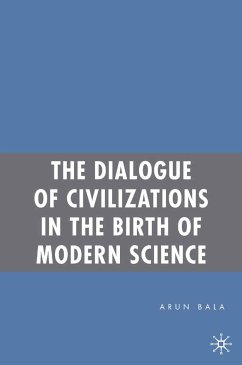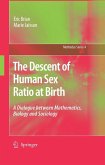Dieser Download kann aus rechtlichen Gründen nur mit Rechnungsadresse in A, B, BG, CY, CZ, D, DK, EW, E, FIN, F, GR, HR, H, IRL, I, LT, L, LR, M, NL, PL, P, R, S, SLO, SK ausgeliefert werden.
"Bala's provocative and challenging thesis that the roots of modern science are multicultural and dialogical is well argued, lucidly written, and deserves to be read not only by specialist scholars, but even more importantly, by the intelligent lay public." - Keekok Lee, Honorary Chair in Philosophy, Institute for Philosophy and Public Policy, University of Lancaster
"This provocative and wide-ranging book challenges the idea that the birth of modern science is a uniquely European cultural achievement. In tracing how Indian mathematics, Arabic astronomy and Chinese science may all have contributed to the Copernican revolution, Bala sets a challenge for Eurocentric historians of science: either refute his plausible conjectures, or give up the self-congratulatory idea that modern science is the product of a specifically Western vision. Withits easy style and wide coverage, this book sets a new research agenda for historical and comparative studies of science." - Andrew Brennan, Chair of Philosophy, La Trobe University"An eye opener, it also ofers an alternative account by arguing that the genesis of modern science cannot be explained adequately without recourse to admission of a dialogical interaction with non-Western traditions of science associated with four streams of civilization: Egyptian, Arabic, Indian, and Chinese...This well-argued book is a welcome addition to the literature on the history of science and religion." - Abrahim H. Khan, Trinity College, Toronto School of Theology"I found this book a provocative and worthwhile read. It could also serve as a useful source to sensitize advanced students to the enormous difficulties of distinguishing between parallel developments, unidirectional influences and cultural dialogues." - Klaus Hentschel









